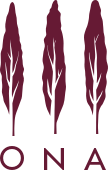

Reserve Filter Drip Bag Box - Janson Family, Panama, Natural
- Regular price
- $29.00
- Sale price
- $29.00
- Regular price
-
- Unit price
- per
Floral, bergamot and citrus
5x10g bags
COFFEE PROFILE
A Natural Geisha from the Janson family, singing with citrus and bergamot and highlighted with jasmine blossom scents.
| TASTES LIKE | Floral, bergamot and citrus |
| ROAST | Filter |
Story
Janson Coffee Farm, established by Swedish immigrant Carl Axel Janson in 1941, is now among the world's most renowned haciendas. The Janson coffee plantations of Hacienda Cafetalera and Los Alpes are situated in the Talamanca Mountain Range near the Tisingal and Baru volcanoes, at altitudes ranging from 1350 to 1700 meters.
The farm has its own beneficio (processing plant) and nursery, carefully selecting specialty Arabica seeds like Geisha, Catuai, Caturra, and Pacamara. The beneficio separates coffees by quality and origin and applies natural and washed processes with modern technology and artisanal methods. Hand-picked and traditionally dried, the farm’s premium coffees are stored in a controlled environment to preserve quality. The Jansons do not use pesticides or herbicides on their plantations in order to naturally maintain soil balance.
| PRODUCER | Kai and Jannette Janson |
| REGION | Volcán |
| VARIETAL | Geisha |
| PROCESS | Natural |
| ALTITUDE | 1700 masl |

Origin
Volcán, Panama
Volcán is a superb coffee-growing region on the slopes of Barú Volcano in Panama's Chiriquí province. Panama has a coffee heritage dating back to 1780 when Typica coffee arrived with European immigrants. The region benefits from favourable conditions: abundant sunshine, fertile soil, high altitude, and a skilled labour force. Panama's Geisha varietals lead the specialty coffee trend globally, captivating coffee enthusiasts worldwide.
Boquete, situated east of Baru Volcano, is Panama's oldest and most renowned coffee-producing area and sits at altitudes ranging from 1000 to 2000 meters above sea level. The region's farmers employ washing and natural processing methods and use natural sunlight to dry and enhance flavour. Baru Volcano is not only the country's highest peak but also provides some of Panama’s most fertile soil, enriched by volcanic residue and minerals.
FAQs
No FAQ items found for this product.






